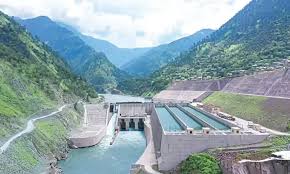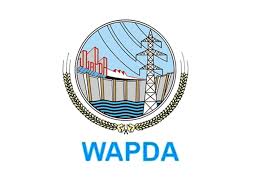ISLAMABAD : The Auditor General of Pakistan (AGP) has said that 969 MW Neelum Jhelum Hydropower Project (NJHPP) was delayed for almost eight years due to which its cost was increased from Rs.84.502 billion (1st revised PC-I) to Rs.419.454 billion, thereby resulting into cost overrun of Rs.334.952 billion.
According to the Performance Audit Report of the Project 2022-23, Neelum Jhelum Hydropower Project was designed to divert water from Neelum River through a diversion dam into a tunnel. This 60 meter high dam is located at Nauseri (41 km from Muzaffarabad) whereas the underground powerhouse is located at Chattar Kalas (22 km from Muzaffarabad). It is a run of river hydroelectric power project of 969 Mega Watt (MW) with an annual generation capacity of 5,150 Giga Watt hours (GWh). The project uses a gross head elevation of about 420 meters available between the Neelum River at Nauseri and the Jhelum River near Zaminabad.
The powerhouse has four generating units having capacity of 242.25 MW each. The first generating unit of the project was commissioned on July 04, 2018, second on August 27, 2018, third on October 04, 2018 and fourth on December 28, 2018. The original PC-I of the project was approved by ECNEC on December 31, 1989 at a total cost of Rs.15,012 million. Later on, subsequent to three intermediary revisions of PC-I, fourth revised PC-I of NJHPP was approved by ECNEC on May 22, 2018 at a total cost of Rs.506,808 million against which actual expenditure of Rs.423,446 million was incurred upto June, 2023. Neelum Jhelum Hydropower Project was funded through Cash Development Loans (CDL) from Government of Pakistan, WAPDA’s Equity, Neelum Jhelum Surcharge (NJS) from electricity consumers and local & foreign relent loans. The audit observations incorporated in this report have been finalized in the light of replies submitted by the management. Several requests for holding of DAC meeting were made, however, DAC meeting was not convened by the management. Audit was conducted in accordance with International Organization of Supreme Audit Institutions (INTOSAI) Auditing Standards, Performance Audit Manual and relevant rules and regulations.
During performance audit of the Neelum Jhelum Hydropower Project, it was observed that in compliance to directions of the Cabinet Committee on Wuller Barrage and Storage Project, a PC-I of Neelum Jhelum Hydropower project with proposed installed capacity of 500 MW was approved by ECNEC in 1989 which was to be completed in 1996. The execution of the project was delayed and feasibility study report was revised in 1997 by increasing the generation capacity from 500 MW to 969 MW. Later on, ECNEC approved 1st revised PC-I of the NJHPP in 2002 having installed capacity of 969 MW with completion period of 8 years i.e. up to 2010, however, construction of the project started in 2008. It was further observed that the matter of securing water rights over River Neelum was not mentioned in the objectives section of the PC-I and its 1st & 2nd revisions. However, the objective of securing water rights of Pakistan over River Neelum was explicitly mentioned in objectives section of 3 rd and 4th revised PC-Is of the project.
Meanwhile, India started construction of Kishenganga Hydro Electric Power in occupied Kashmir in 2007. The Islamic Republic of Pakistan initiated arbitration proceedings pursuant to terms stated in Annexure-G of the Indus Water Treaty against the Republic of India through a “Request for Arbitration” to the Permanent Court of Arbitration (PCA), Hague dated May 17, 2010. The court initially considered the case of Pakistan with reference to Paragraph-15(iii) of Annexure-D to the Indus Waters Treaty 1960 which states that “where a Plant is located on a Tributary of the Jhelum on which Pakistan has any agricultural use or hydro-electric use, the water released below the Plant may be delivered, if necessary, into another Tributary but only to the extent that the then existing agricultural use or hydro-electric use by Pakistan on the former Tributary would not be adversely affected”. The court examined and concluded that India had a stronger claim to having coupled intent with action at the Kishenganga Hydro-Electric Project (KHEP) earlier than Pakistan achieved the same at the NJHEP, resulting in the former’s priority in right over the later with respect to the use of the waters of the Kishenganga / Neelum River for hydro-electric power generation. However, the court vide its decision dated December 20, 2013 decided that “India shall release a minimum flow of 9 cusecs into the Kishenganga/ Neelum River below the KHEP at all times at which the daily average flow in the Kishenganga/Neelum River immediately upstream of the KHEP meets or exceeds 9 cuecs”. It was further decided that “at any time at which the daily average flow in the Kishenganga/Neelum River immediately upstream of the KHEP is less than 9 cusecs, India shall release 100 percent of the daily average flow immediately upstream of the KHEP into the Kishenganga/Neelum River below the KHEP”. Resultantly, Pakistan lost priority water rights on Neelum river and one of the objectives of the project to establish water rights on River Neelum could not be achieved due to delayed completion of the project in 2018 instead of 2010.
The Audit is of the view that project mismanagement resulted into non-achievement of objective regarding establishment of water rights on River Neelum / Kishenganga for Pakistan. The matter was taken up with the management and reported to MoWR in March, 2023. The management replied that design / output of NJHP was optimized without considering the construction of Kishenganga Hydroelectric Project. The reply was not acceptable as the above factor was required to be considered at the design stage of the project which was not done. Furthermore, time overrun of the project was a major factor with regards to non-achievement of the objective of securing water rights over River Neelum for which the management has not provided any justification.
There was abnormal time overrun of nine years and cost overrun of Rs 338.944 billion.
During performance audit of the Neelum Jhelum Hydropower Project, it was noticed that as per 4th revised PC-I of the project, payback period of the project was envisaged as 5.17 years from the first year of operation. However, payback period of the project had been increased from 5.17 years to 12 years as per actual calculations on the basis of average generation of the project from date of commissioning i.e. July 04, 2018. This showed that it would take an extra seven (07) years to recover the initial investment cost of the project. Non-adherence to the provisions of the PC-I resulted into reduced effectiveness of the project due to increase in the payback period by seven years. The matter was taken up with the management and reported to MoWR in March, 2023. The management replied that payback period was calculated on provisional tariff of Rs.9.1184/kWh, whereas, NJHPC has applied for tariff of Rs.13.0331/kWh. On finalization of tariff, NJHPC would receive its impact retrospectively. Further, current year’s energy loss occurred due to collapse of TRT which was also recoverable from M/s National Insurance Company Limited (NICL) through business interruption claim. The payback period of the project would be reduced upon approval of tariff and successful claim from NICL.
The reply of the management was not convincing as tariff of Rs.13.0331/kWh was not approved by NEPRA in July, 2018 onwards due to non-conducting of TPV which was required by ECNEC while approving 3rd revised PC-I of the project. TPV is still pending since more than 8 years. The insurance claim lodged with M/s NICL is also pending since February 2023. Moreover, the actual payback period after taking effect of increase in tariff and claim from insurance company would still be beyond the payback period approved in the PC-I.
Non- earning of revenue as per Clean Development Mechanism- $ 50.133 per annum : During performance audit of the Neelum Jhelum Hydropower Project, it was noticed from 4th revised PC-I of the project that after completion of the project, carbon credits @ US$ 5 per ton of CO2 gas produced could be claimed by the management from UNFCCC. As such, the project could earn CDM revenue amounting to US$ 12.533 million per annum. It was further observed that the project had been commissioned for four (4) years but no efforts were made by the management to avail financial benefits amounting to $ 50.133 million ($ 12.533 million4 years) under CDM. Non-adherence to the PC-I provisions resulted into non-earning of revenue amounting to US$ 50.133 million per annum.
Other observations are ;(i) loss of revenue due to non-approval of reference tariff by NEPRA- Rs 71 billion;(ii) non-conducting of inquiry for collapse in tail race tunnel resulting into generation loss- Rs 20 billion;(iii) unjustified excess payment to the contractor without determining actual quantities of raw stone aggregate – Rs 1.775 billion ;(iv) Non-indemnification of insurance claim lodged for loss sustained due to collapse in Tail Race Tunnel – Rs 42 billion ;(v) Non-recovery on account of sale of energy from CPPA-G – Rs.40 billion.
Initially, excavation was carried out through Drill and Blast (D&B) method and later on, Tunnel Boring Machines (TBMs) were deployed in 2011 at detailed design stage to reduce the implementation time of the project. It was anticipated that early availability of 969 MW power would help in reduction of load-shedding, enhancement of economic activity and would also help Pakistan to gain priority over water rights of Neelum River vis-à-vis Kishenganga Hydropower Project, a run of the river project having installed capacity of 330 MW. The NJHP could not achieve its intended generation of 5,150 GWh units annually due to decrease in water as a result of losing rights on Neelum River water in the International Court of Arbitration. Annual generation of the project from the year 2019 to 2021 remained at an average of 4,600 GWh against the target of 5,150 GWh and further fell down to 2,476 GWh in the year 2022 before coming to a complete halt on July 06, 2022 when the project suffered a major break down due to collapse in Tail Race Tunnel (TRT). The restoration work of TRT, awarded to the previous contractor M/s China Gezhouba Group Co. Ltd. (CGGC) at a cost of Rs.2.49 billion, was completed on August 10, 2023 and the power house is in operation since then.
Ends















